How One Determined Social Worker Is Providing Mental Health Help to Virtual Students
With mental health affecting increasing numbers of teens, one woman found a way to reach those in need, even if they weren't going to school in-person
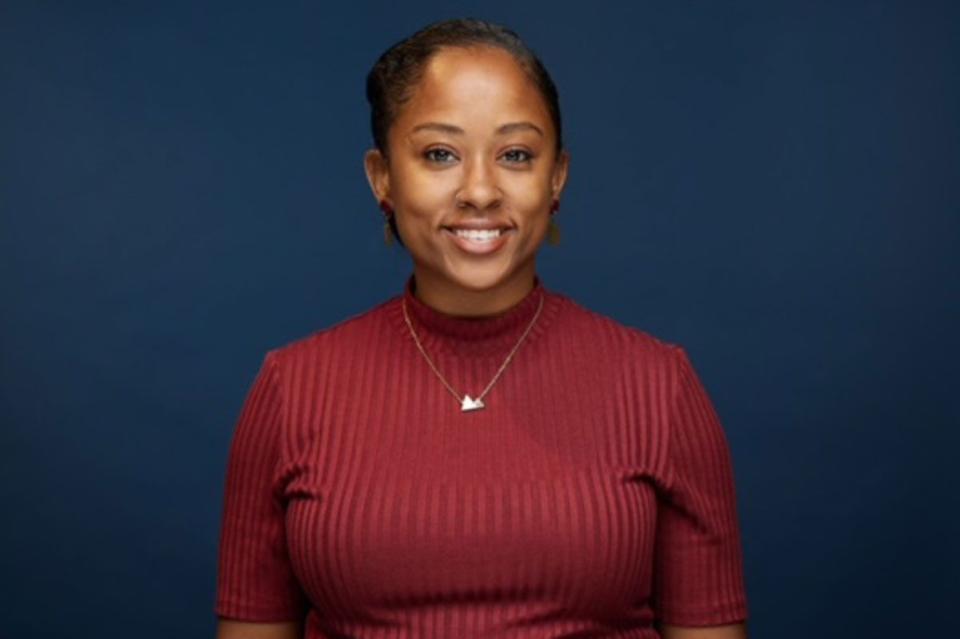
Courtesy of Shannon Doss
Nearly 93% of children in the United States did some form of online learning in the heart of the pandemic. But people may not realize that virtual schooling is still very much a thing. Kids seek out online school for a number of reasons, whether professional (Storm Reid studied virtually while filming A Wrinkle in Time) or personal (including conditions such as social anxiety, homelessness or health challenges).
While online education gives kids a chance to learn at a pace comparable to their peers, it can also come with its own challenges, such as loneliness, stress and anxiety — which are many of the same mental health issues that kids of all ages face.
Following the pandemic, California Online Public Schools (CalOPS), a public, tuition-free online school that operates in 32 California counties, recognized the need for mental health support for its 9,300 K-12 students. In 2022, Shannon Doss signed on as the school’s inaugural social worker, joining to launch programs to support kids who didn't have in-person counselors to access for help.
“Before I joined the team, there was not a social worker or mental health professional on staff,” says Doss. She was attracted to the challenge of helping students in a nontraditional school setting to feel more connected and supported.
“When you're online, it is you and whomever else is in your household and so you're missing the face-to-face interaction at [brick and mortar] schools,” she says. As a result, students may not develop the social skills others get from daily traditional schooling interactions, or don't have the resources to turn to when they're in emotional turmoil.
“Part of my role is to try to help fill that gap by teaching some of those skills, and working with students one on one to make sure that if those skills aren't there, and that they're struggling, they have the coping skills and the support that they need to continue,” says Doss.
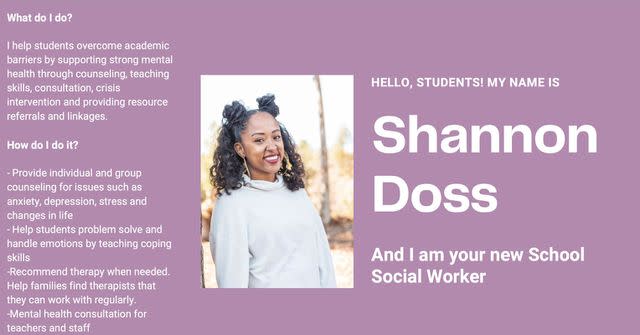
Courtesy of Courtesy of CalOPS
Mental health tools for students and parents
When starting her job, Doss talked to both parents and students to see what mental health support they were looking for. While some needed more targeted help, a lot of what she learned was that even those without specific concerns were looking for skills to be able to have at their disposal should challenging situations arise in the future.
“Something parents really asked for was how to help their kids promote strong emotional well-being and mental health,” says Doss. “The main thing we saw was the need for some of these skills to be more preventative ... and less reactive."
Doss launched biweekly Mental Health Mondays, where she hosts workshops for students and separate sessions for parents on topics like “How to Reduce Anxiety” and “Suicide Awareness and Prevention.”
She’s even taught parents how to understand their child’s “Love Language'' so they can strengthen the way they relate to one another. “The Love Languages sessions helped parents understand how our children receive love, because sometimes there could be that gap between like, ‘Oh, I had good intentions, but it didn't come across well with my child.’ And so how to speak with their child in a way that the child can see the level of support.” says Doss.
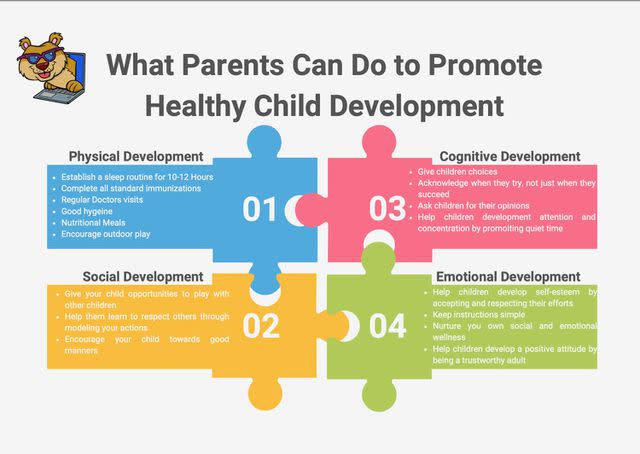
Courtesy of Courtesy of CalOPS
She also works with parents to help them learn how to create secure attachments with children that will help them to have the confidence they need to navigate the world, and offers virtual office hours that parents can book to discuss how to support their children through challenges that may pop up. “Parents can come in and ask questions about anything related to their student's mental health,” says Doss.
Each month, CalOPS centers its mental health services around a new theme (in June, she will present a curriculum tied to themes of perseverance). Last September was Suicide Awareness month, during which Dos led workshops for students to learn about warning signs, as well as ways to support their friends.
“Because we're in an online environment, oftentimes, there are certain cues we might miss. So: How do I look for those signs in my friends and in myself? Where do I go to get support? How can I be a support to a friend? And how can I get some for myself?” Doss explains.
Several students shared that they were able to use what they learned in a workshop to identify worrisome behavior in friends and help them to get the support that they needed.
“Incredibly rewarding work”
CalOPS hosts in-person events for students several times a year, during which Doss is often approached by students and parents on site.
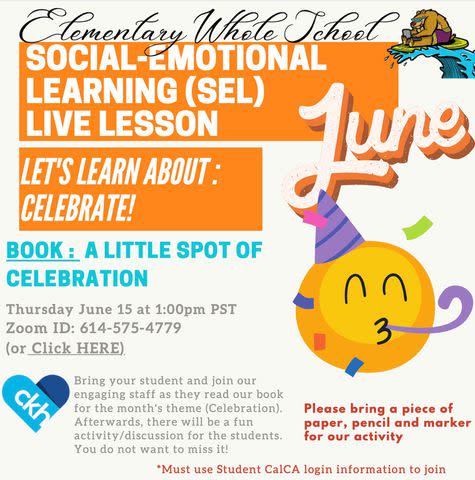
Courtesy of Courtesy of CalOPS
“I've had students that come up to me and parents that recognize me from the workshops and they're like, ‘I remember you, Mrs. Dos, and what you said was so helpful,’” she says. Students also often tell her that she makes them feel heard.
“The most rewarding experience to give them is a space that is safe to feel what they feel, and then their parents can now do that as well," she says. "Because parents are very heavily involved with their education in our program, it's really important that I equip parents. And so when I have parents that feel like they're equipped to handle some of the challenges their students have, it is very rewarding.”
Doss has heard that her efforts have brought awareness to the fact that other parents and students are facing the same issues, helping to normalize mental health struggles. “They find it helpful that they can hear from others that, 'Wow, I'm not the only one struggling',’' she says.
Of course, as with any new program, there have been challenges to address. Some students, for instance, need a bit more help than the workshops and mental health promotion that she hosts. Doss sets this group up with one-on-one sessions, which she admits aren’t always easy to do on video chat, as students with anxiety in social situations can be harder to engage with, especially when not face-to-face.
“I have to find creative ways to do it, creative games to play in the Zoom world,” she says, noting that building rapport is the first initial step to any therapeutic relationship. “That is one of the hardest challenges, but once you break through, you can see the benefits.”
Other CalOPS staff also attests to the wide-reaching effects of Doss's work.
“I can think of one student in particular who had the confidence to come forward and talk about her own mental health struggles with me after listening to Ms. Doss’s presentation,” says Jennifer Conley, a teacher with California Online Public Schools. “[The student] and I now meet a couple times a month and just chat about class, art, sometimes how she is doing mentally, but mostly just about her life. I believe because of Ms. Doss’s presentation she felt like it was OK to have the feelings she was having and to talk about them.”
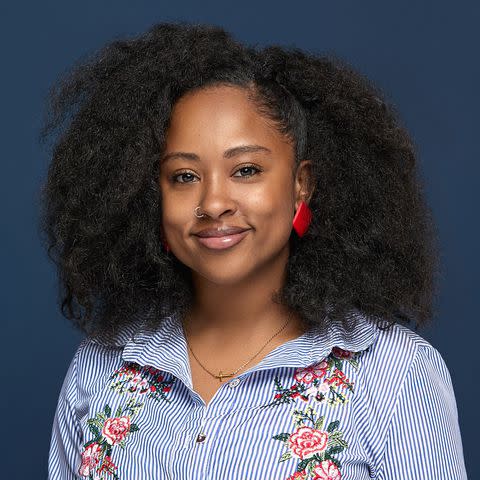
Courtesy of Shannon Doss
Doss also provided testimonials from students in her program to show its impact.
"“Mrs. Doss has helped me bring more emotion and color into my art pieces because of the themes we talk about together. She has helped me in ways to become a better person as well as be more expressive of who I am.” – Evan K.
"
“I look forward to meeting with Mrs. Doss because she helps me to improve my thinking. She showed me the feel-think-do triangle and now I am able to rethink my actions and change my thoughts. I really appreciate her time and she has helped me grow. Mrs. Doss showed me that progress is not always linear, and this encourages me to keep going.” – Corian B.
“When I meet with Mrs. Doss, she helps me to understand my emotions. I really appreciate her support.” – Ethan W.
Student Testimonials
“I understand resources are limited and budgets are tight, but having a dedicated school social worker and mental health programs for students are transformative,” adds CalOPS superintendent Dr. Richard Savage. “There are too many social issues our kids are facing and these problems are not going to go away. Shannon's background and experience has added so much depth to our school’s social, emotional and wellbeing programing and we see the positive results in our students which is what ultimately matters.”
Next up for Doss is working on the school’s Capturing Kids Hearts initiative, a program focused on social and emotional learning training for teachers.
“The goal is to have a universal, across the whole school way to promote positive social, emotional skills from grade K to 12,” says Doss. “We have a committee that supports us getting this out there to our students, to our parents. We have newsletters, we have a website focused on just how I can be doing this at home, and teachers can use the resources to incorporate it into everything that they're doing, so that way it is across the board."
For more People news, make sure to sign up for our newsletter!
Read the original article on People.


